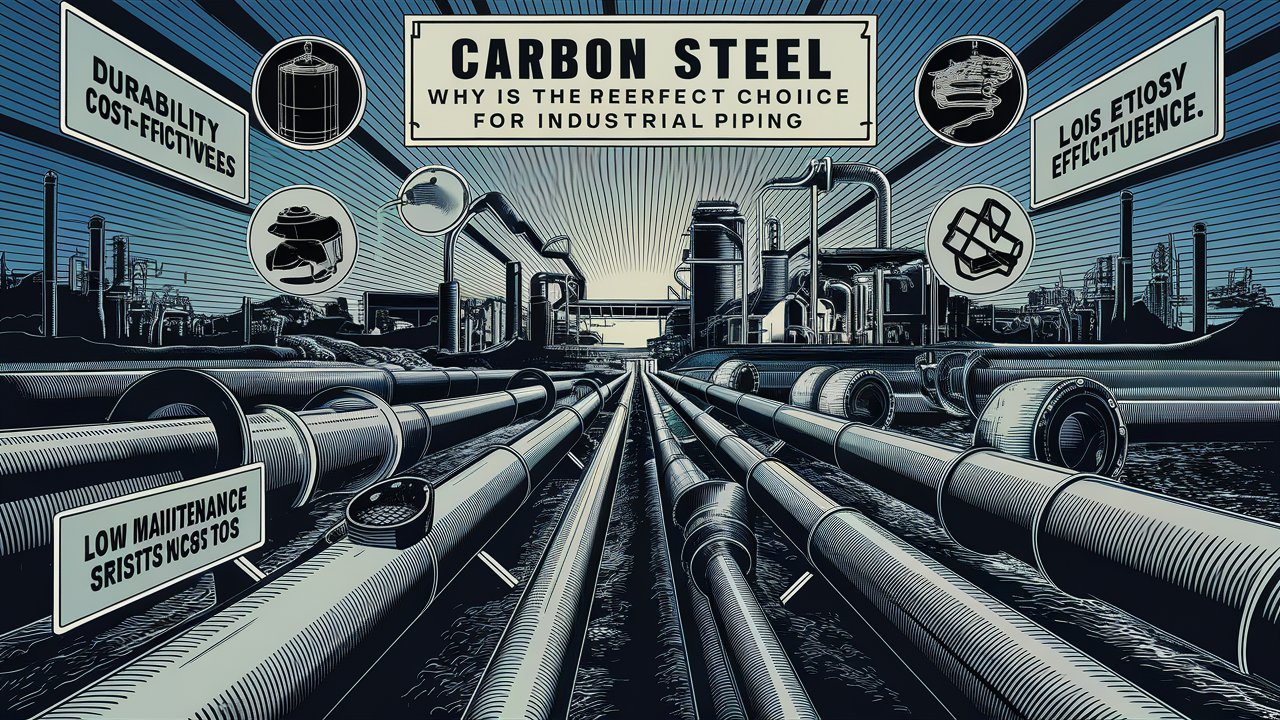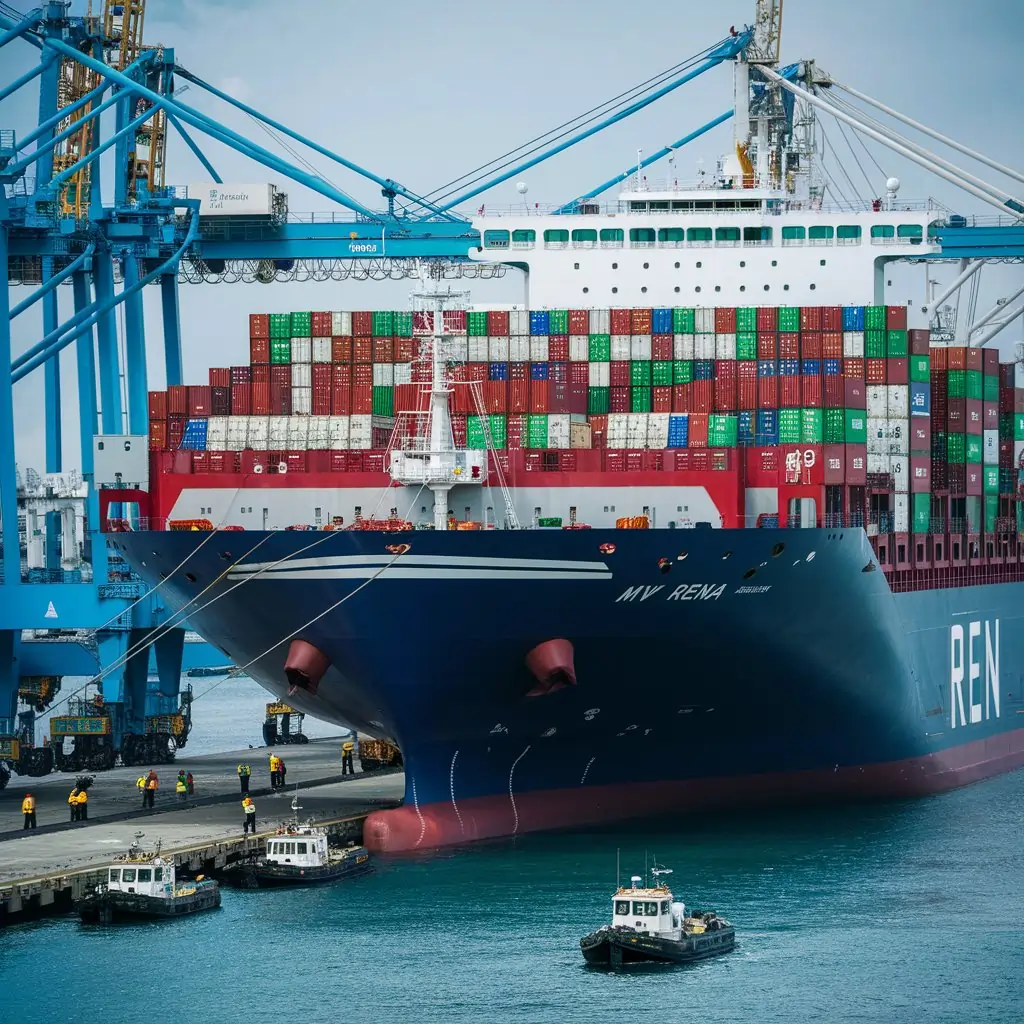Why Carbon Steel is Ideal for Industrial Piping
Carbon steel is a top choice for industrial piping due to its strength, durability, and cost-effectiveness. UNIASEN is famous

Carbon steel is a top choice for industrial piping due to its strength, durability, and cost-effectiveness. UNIASEN is famous for its carbon steel pipe manufacturing production.
This article explores why carbon steel is ideal for industrial piping, covering its properties, benefits, applications, and maintenance.
What is Carbon Steel?
Carbon steel is a type of steel where carbon is the main alloying element. Its carbon content can range from 0.05% to 2%. This makes it strong and durable, which is why it is widely used in industrial applications.
Key Characteristics
· Strength: High tensile strength makes it suitable for high-pressure applications.
· Durability: Resistant to wear and tear, providing long-lasting performance.
· Cost-Effective: More affordable than other materials like stainless steel.
Benefits of Carbon Steel for Industrial Piping
High Strength and Durability
Carbon steel is known for its high strength and durability, making it perfect for industrial environments where pipes are subjected to high pressures and temperatures.
· High Pressure: Can handle high pressure without deforming or bursting.
· Temperature Resistance: Stays strong at high temperatures, suitable for steam and hot water lines.
· Wear Resistance: Resistant to abrasion, ensuring a long lifespan.
Cost-Effectiveness
One of the main reasons for choosing carbon steel is its cost-effectiveness. Compared to materials like stainless steel or copper, carbon steel is more affordable without compromising quality.
· Lower Material Cost: Carbon steel is less expensive to produce.
· Long Lifespan: Durable and requires less frequent replacement, reducing long-term costs.
Versatility
Carbon steel pipes are highly versatile and can be used in various industrial applications, including:
· Oil and Gas: Used in pipelines for transporting oil and gas due to its strength and durability.
· Chemical Industry: Suitable for handling chemicals and gases.
· Construction: Used in building frameworks and infrastructure.
Easy to Manufacture and Install
Carbon steel pipes are easy to manufacture and install, making them a practical choice for industrial projects.
· Fabrication: Can be easily fabricated into different shapes and sizes.
· Welding: Easy to weld, allowing for quick and efficient installation.
Applications of Carbon Steel in Industrial Piping
Oil and Gas Industry
The oil and gas industry heavily relies on carbon steel pipes for transportation and distribution.
· Pipeline Construction: Used in constructing pipelines for transporting oil, natural gas, and other fluids.
· Refineries: Essential in refineries for processing and transporting crude oil and natural gas.
Chemical Industry
Carbon steel pipes are widely used in the chemical industry due to their ability to handle various chemicals and gases.
· Chemical Processing: Used in processing plants to transport chemicals safely.
· Storage Tanks: Constructed using carbon steel due to its durability and resistance to corrosion.
Power Generation
In the power generation industry, carbon steel pipes are used in various applications, including:
· Boiler Systems: Essential in boiler systems for transporting steam and hot water.
· Cooling Systems: Used in cooling systems to transport cooling fluids.
Construction Industry
The construction industry also benefits from the use of carbon steel pipes.
· Structural Components: Used in building frameworks and structural components.
· Water Supply: Essential in water supply systems for residential and commercial buildings.
Pipe Spools
Pipe spools, which are pre-fabricated sections of a piping system, often use carbon steel due to its durability and ease of fabrication. These spools are assembled and welded in a shop, then transported to the site for installation, ensuring high-quality and efficient assembly. See more what is a pipe spool.
Maintenance and Longevity
Maintaining carbon steel pipes is crucial to ensure their longevity and optimal performance.
Regular Inspections
Regular inspections are necessary to identify any signs of wear and tear, corrosion, or damage.
· Visual Inspections: Regularly check for any visible signs of corrosion or damage.
· Ultrasonic Testing: Use ultrasonic testing to detect any internal defects or weaknesses.
Corrosion Prevention
Although carbon steel is durable, it is susceptible to corrosion if not properly maintained.
· Coatings: Apply protective coatings to prevent corrosion.
· Cathodic Protection: Use cathodic protection to reduce the risk of corrosion in buried pipes.
Proper Handling and Installation
Proper handling and installation are essential to ensure the longevity of carbon steel pipes.
· Handling: Avoid dropping or dragging pipes to prevent damage.
· Installation: Ensure pipes are correctly installed to avoid leaks and other issues.
Comparison with Other Materials
Carbon Steel vs. Stainless Steel
While both carbon steel and stainless steel are used in industrial piping, they have different properties and advantages.
· Cost: Carbon steel is more affordable than stainless steel.
· Corrosion Resistance: Stainless steel offers better corrosion resistance.
· Strength: Both materials offer high strength, but carbon steel is typically stronger.
Carbon Steel vs. Copper
Copper is another material used in industrial piping, but it has different properties compared to carbon steel.
· Cost: Carbon steel is less expensive than copper.
· Durability: Carbon steel is more durable and resistant to wear.
· Corrosion: Copper is more resistant to corrosion.
Environmental Impact
Choosing carbon steel for industrial piping also has environmental benefits.
Recyclability
Carbon steel is highly recyclable, making it an environmentally friendly choice.
· Recycling: Can be recycled and reused, reducing waste and environmental impact.
· Sustainability: Supports sustainable practices in industrial applications.
Energy Efficiency
Using carbon steel can contribute to energy efficiency in industrial processes.
· Energy Savings: Reduces energy consumption during production and transportation.
· Reduced Emissions: Lower energy consumption leads to reduced greenhouse gas emissions.
Future Trends in Carbon Steel Piping
Advancements in Technology
Technological advancements are driving improvements in carbon steel piping, making it even more efficient and reliable.
· Enhanced Coatings: Development of advanced coatings to improve corrosion resistance.
· Smart Piping Systems: Integration of smart technologies for better monitoring and maintenance.
Increased Demand
The demand for carbon steel pipes is expected to grow in various industries due to their cost-effectiveness and reliability.
· Infrastructure Development: Increasing infrastructure projects globally are driving demand.
· Industrial Growth: Expansion of industrial activities in emerging markets is boosting demand.
Conclusion
Carbon steel is an ideal material for industrial piping due to its high strength, durability, cost-effectiveness, and versatility. It is used in a wide range of applications, including the oil and gas industry, chemical industry, power generation, and construction.
Proper maintenance and handling are essential to ensure the longevity of carbon steel pipes. With advancements in technology and increasing demand, carbon steel will continue to play a vital role in industrial piping systems.









